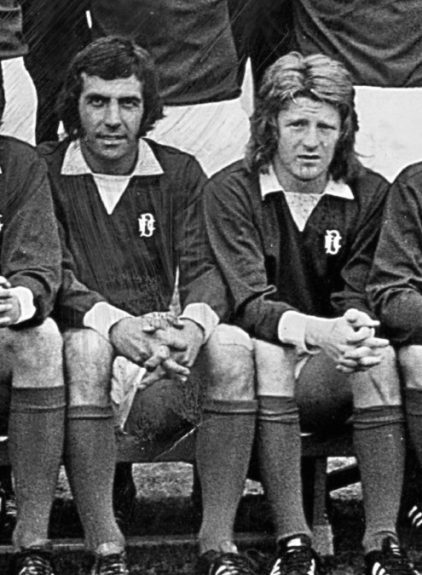As he turned 60 this week, Scotland boss Gordon Strachan is a figure who divides opinion.
While he has the backing of the SFA and remains a highly-regarded coach within the game, after failure to reach the last Euros and struggles in the current World Cup qualifying campaign, there’s no argument a sizeable chunk of the Tartan Army want to see him binned.
Even if that comes to pass, what won’t be in doubt is the at-times-fiery character has enjoyed an illustrious and successful career in the game.
And it’s one that started here in Dundee some 46 years ago.
It was back in the 1970s the Edinburgh-born teenager was snapped up on an S-Form by the Dark Blues, managed at the time by Davie White. They got him after he spurned an approach from Manchester United, a club he’d star later for.
Strachan’s decision to head for Dens Park and not Old Trafford was an early indication of his single-minded character, perhaps the first example of his habit of saying and doing what he thinks is right, irrespective of the opinions of others.
His logic was simple — joining Dundee would offer a quicker route to first-team football. When you look back on a successful playing career with Aberdeen, Manchester United and Leeds in particular, it’s impossible to challenge his thinking.
While his time at Dens was very much about taking the first steps towards realising his potential, from early on it was clear he was a talent.
Strachan came to the attention of a wider audience as he starred against an Arsenal team that included World Cup winner Alan Ball in a friendly.
His red hair and that fiery temperament saw him quickly labelled Scotland’s new Billy Bremner, a comparison he would live up to over the next 20-plus years.
That he played so long and went on to manage in the English Premier League with Coventry City and Southampton before enjoying a successful four years in charge at Celtic, surprised few who knew him as a kid.
One was Dee legend Jocky Scott, a senior pro at the club back then. He found out Strachan was not always one to respect reputation.
“My first impression of “Strachs” was he was a cheeky wee so-and-so,” recalled Jocky.
“If my memory serves me, he arrived in a group who were all from the Edinburgh area. There was him, George Mackie, Alex Caldwell and maybe Ian Anderson. They’d been with Hutchie Vale, a good youth club through there, and they didn’t lack confidence.”
In Strachan’s case, it was soon clear he had the ability to back up his cockiness and, while Jocky believes his best years were down south, he remembers a talented kid.
“He was never slow to give an opinion and that hasn’t changed but we could see he was going to be a player.
“He was in our first team at 17, so I don’t think the fans saw the best of him at Dens, but that was understandable because of his age.
“As well as he did at Aberdeen, you might say the same. For me it was at Manchester United and Leeds that we saw just what a top player he was.”
Over the years, the pair’s paths have crossed and the most pleasing thing for Jocky is Strachan’s success never went to his head.
“When I’ve met Strachs he’s always been the same. He’s a real football person and he’s never forgotten the people and clubs he worked with throughout his career.
“The only bad thing I’d say about him is he’s turning 60 — that makes me feel old!”

